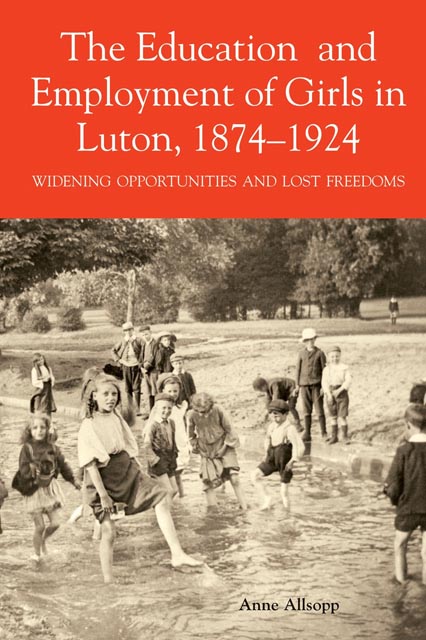
- Publisher:
- Boydell & Brewer
- Online publication date:
- August 2023
- Online ISBN:
- 9781800107717
This book, based on the author's PhD thesis, examines the education of Luton girls and the relationship with employment opportunities. The acknowledged independence of spirit to be found in Luton was especially noticeable among its female population who enjoyed considerable economic power within the traditional hat-making industry.
In spite of this, there is evidence to show that girls' education was biased towards their roles as wives and mothers. However, by the early twentieth century, the effects of compulsory education and the introduction of new industries into the town meant that their status and expectations had changed.
Sunday schooling was important to children from the labouring classes and the contribution of these schools has been assessed. Specific themes include half-time schooling and the granting of labour certificates which allowed children to leave school before the statutory age.
The contribution of the home and independent organisations, the training of teachers, the character of rural schools and the introduction of technical and secondary education have also been considered. While emphasis is on the education of girls from the lower social classes, the middle classes have not been ignored.
 Loading metrics...
Loading metrics...
* Views captured on Cambridge Core between #date#. This data will be updated every 24 hours.
Usage data cannot currently be displayed.